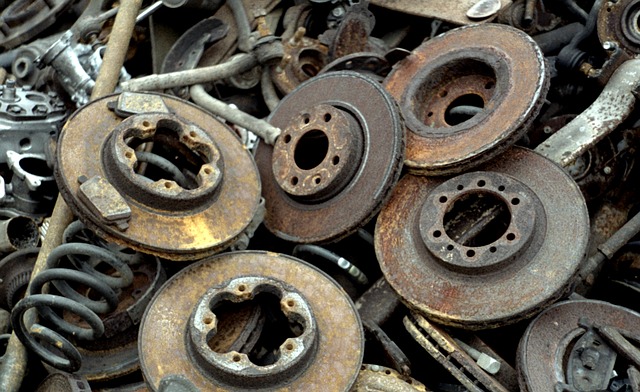Leaf collection and mulching are essential for maintaining a healthy, vibrant yard. By systematically removing fallen leaves, homeowners prevent debris-related damage and keep their outdoor space clean. Mulching recycles these leaves into nutrient-rich compost, reducing the need for chemical fertilizers, improving soil structure, insulating the soil, and conserving moisture. Efficient yard waste removal and recycling through these practices contribute to environmental sustainability while keeping the yard aesthetically pleasing year-round. Responsible Yard Waste Removal and Recycling are crucial for eco-conscious living, preventing waste from ending up in landfills, enriching soil health, promoting plant growth, preserving ecosystems, and reducing greenhouse gas emissions.
Looking to transform your yard and enhance its health? Leaf collection and mulching are essential practices that offer a multitude of benefits. This comprehensive guide delves into the art of efficient leaf removal, highlighting the advantages for your garden’s growth and overall aesthetic appeal. We’ll explore the step-by-step process, from gathering leaves to applying mulch, ensuring a lush, vibrant landscape. Additionally, we’ll discuss responsible yard waste recycling, emphasizing its environmental impact and sustainability.
- Understanding Leaf Collection and Mulching: Benefits for Your Yard
- The Process of Effective Leaf Removal and Mulch Application
- Environmental Impact: Recycling Yard Waste Responsibly
Understanding Leaf Collection and Mulching: Benefits for Your Yard

Leaf collection and mulching are essential practices for maintaining a healthy and vibrant yard. By understanding the benefits of these processes, homeowners can significantly enhance their outdoor space’s overall appearance and ecological footprint. Leaf collection involves the systematic removal of fallen leaves, which not only keeps the yard clean but also prevents potential damage caused by accumulated debris. This practice is crucial during the autumn season when trees shed their foliage rapidly.
Mulching, on the other hand, recycles these collected leaves into nutrient-rich compost that can be returned to the soil. This natural process reduces the need for chemical fertilizers and promotes better soil structure. It also helps insulate the soil, retaining moisture during hot summer months and protecting plant roots from extreme cold temperatures. Efficient yard waste removal and recycling through leaf collection and mulching contribute to a more sustainable environment while ensuring your yard remains aesthetically pleasing throughout the year.
The Process of Effective Leaf Removal and Mulch Application

The process of effective leaf removal and mulch application involves several key steps. First, it’s crucial to gather leaves efficiently through regular raking or blowing, ensuring minimal damage to grass and plants. Once collected, proper sorting becomes essential—separating leaves from other yard waste like twigs and branches. This separation facilitates better composting, a vital aspect of yard waste recycling.
After sorting, the leaves can be shredded or left whole for mulching. Shredded leaves are ideal for immediate application since they break down quickly, enriching soil with nutrients. Whole leaves can be used as a protective layer, suppressing weeds and retaining moisture—a natural form of mulching that enhances garden aesthetics while promoting environmental sustainability through yard waste removal and recycling.
Environmental Impact: Recycling Yard Waste Responsibly

In today’s eco-conscious world, responsible yard waste removal and recycling are essential components of sustainable living. When properly managed, leaf collection and mulching contribute significantly to reducing environmental impact. By turning fallen leaves into mulch, we not only prevent them from ending up in landfills but also enrich soil health, promoting better plant growth. This natural process helps preserve local ecosystems by fostering nutrient cycling and habitat creation for beneficial insects and wildlife.
Furthermore, responsible yard waste recycling reduces the carbon footprint associated with traditional waste disposal methods. When left to decompose naturally, organic materials release greenhouse gases into the atmosphere. However, by collecting, processing, and repurposing these materials as mulch, we can significantly decrease such emissions. This simple yet effective practice encourages a more sustainable approach to managing yard waste, ultimately benefiting both our communities and the environment.
Leaf collection and mulching are not only beneficial for maintaining a healthy yard but also play a crucial role in responsible yard waste removal and recycling. By understanding the process and its environmental impact, homeowners can contribute to a sustainable landscape. Effective leaf management not only enhances garden aesthetics but also fosters a balanced ecosystem. So, whether you’re removing leaves or applying mulch, remember that these simple practices can make a significant difference in your yard’s overall health and the environment.

